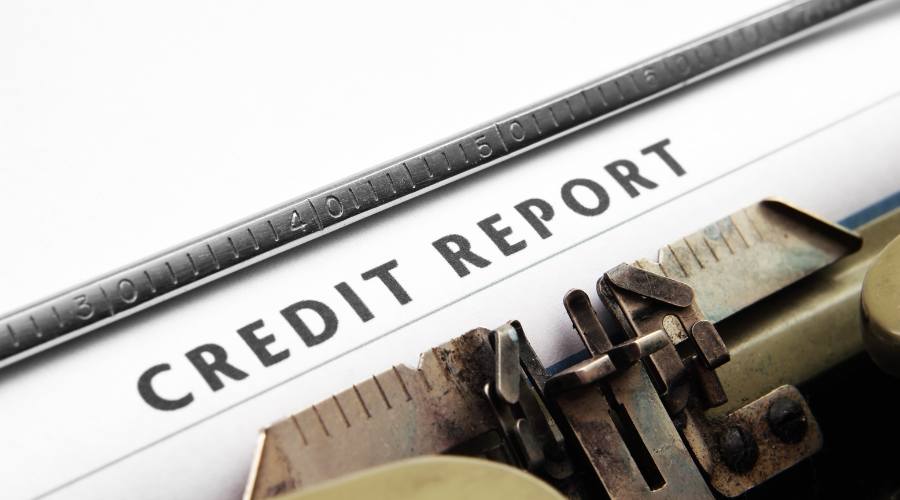Your business credit report is a critical component of your company’s financial health.
Understanding how to decipher and interpret this report can make a significant impact on your ability to secure financing, negotiate favorable terms with suppliers, and even attract new customers.
This blog post will walk you through the process of decoding your business credit report, discussing its key components, and providing tips for improving it to give your business the best chance of success.
What is a Business Credit Report?
A business credit report is a comprehensive record of your company’s credit history and financial behavior.
The primary purpose of a business credit report is to help lenders and suppliers assess the creditworthiness of your company when considering extending credit, loans, or other financial assistance.
The three major credit reporting agencies for businesses are Dun & Bradstreet, Experian, and Equifax.
Unlike a personal credit report, which focuses on an individual’s financial history, a business credit report is centered around your company’s credit activities.
It considers factors such as payment history, credit utilization, and public records to paint a picture of your business’s financial stability and responsibility.
Components of a Business Credit Report
A business credit report typically contains the following sections:
Identifying Information
- Business name and address: This section includes your company’s official name, address, and contact information. It may also list any alternate names or DBAs (Doing Business As) that your company operates under.
- Business structure: This part of the report will indicate whether your business is a sole proprietorship, partnership, corporation, or LLC.
Credit History
- Types of credit accounts: Your business credit report will list all your company’s credit accounts, including loans, credit cards, and lines of credit. It will also show the date each account was opened, the credit limit, and the current balance.
- Payment history: This section will display your company’s payment history for each account, including whether payments were made on time, late, or missed altogether.
Public Records
- Bankruptcies: Your business credit report will indicate if your company has ever filed for bankruptcy.
- Tax liens: Any tax liens against your business will be listed in this section.
Judgments: Legal judgments, such as those resulting from lawsuits or other legal proceedings, will appear in this part of the report. - Credit Inquiries: This section lists any inquiries made into your business credit report by other companies or lenders, usually when considering extending credit or financing to your business.
- Business Credit Score: Your business credit score is a numerical representation of your company’s creditworthiness, typically ranging from 0 to 100. A higher score indicates a lower risk for lenders and suppliers.
How to Read Your Business Credit Report
Assessing Your Credit History
- Analyzing the Identifying Information: Begin by reviewing your company’s identifying information to ensure that it is accurate and up-to-date. If you find any errors, contact the credit reporting agency to correct them.
- Identifying Late Payments: Look for any late or missed payments in your payment history, as these can negatively impact your credit score. Make a plan to address any late payments and ensure that future payments are made on time.
- Evaluating Credit Utilization: Assess your company’s credit utilization by comparing the outstanding balances on your credit accounts to the available credit limits. A high utilization rate can harm your credit score, so consider paying down balances to lower this ratio.
Reviewing Public Records
- Addressing Negative Public Records: If your report contains bankruptcies, tax liens, or judgments, take steps to resolve these issues and work on rebuilding your credit. Consult with a financial advisor or attorney for guidance on addressing these negative marks.
- Understanding Credit Inquiries: A high number of credit inquiries can signal to potential lenders that your business may be seeking excessive credit, which can negatively affect your credit score. Limit the number of credit inquiries by only applying for credit when necessary and strategically spacing out applications.
- Interpreting Your Business Credit Score: A higher business credit score indicates lower risk and greater creditworthiness. Understand what factors contribute to your score, such as payment history and credit utilization, to identify areas for improvement.
Tips for Improving Your Business Credit Report
- Establishing Credit Accounts: If you don’t already have business credit accounts, open a business credit card or line of credit to begin building your credit history.
- Paying Bills on Time: Consistently making on-time payments is one of the most effective ways to improve your business credit report. Set up payment reminders or automate bill payments to ensure timely payment.
- Reducing Credit Utilization: Lower your credit utilization by paying down outstanding balances and avoiding maxing out credit limits. A lower utilization rate will reflect positively on your credit report.
- Regularly Monitoring Your Credit Report: Keep an eye on your business credit report to identify and address any errors or discrepancies promptly. Regular monitoring can also help you stay informed about your company’s credit standing and track improvements over time.
- Addressing Errors on Your Report: If you find any errors in your business credit report, contact the credit reporting agency immediately to correct them. Accurate information is crucial for maintaining a healthy credit profile.
How a Strong Business Credit Report Benefits Your Business
- Improved Access to Financing: A favorable business credit report can help your company secure loans, credit cards, and lines of credit more easily.
- Lower Interest Rates: Lenders are more likely to offer lower interest rates to businesses with strong credit reports, reducing your company’s borrowing costs.
- Better Terms with Suppliers: Suppliers may extend more favorable payment terms, such as longer payment periods or discounts, to businesses with solid credit reports.
- Increased Credibility with Customers and Partners: A strong business credit report can serve as a signal of financial stability, which may attract new customers and partners and strengthen existing relationships.
Conclusion
Maintaining a healthy business credit report is vital to your company’s long-term success.








